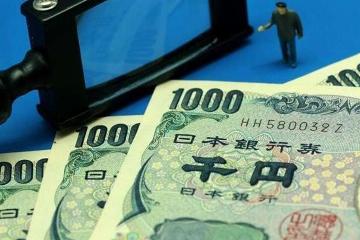In recent times, the fluctuations surrounding U.STreasury bonds have captured the attention of global financial markets, particularly with Japan decreasing its holdings by a staggering $3.1 billion while the U.Kopted to ramp up its own by $22.3 billionThese divergent strategies raise intriguing questions about national economic policies and the underlying signals these moves send to the rest of the worldParticularly noteworthy is China's recent decision to increase its Treasury holdings during this period of fluctuationSuch contrasting approaches warrant a deeper investigation into the motivations behind themWhy would a country like Japan, dealing with mounting economic pressures, choose to reduce its investments in U.Sbonds? And conversely, what strategic rationale drives the U.Kto bulk up its investments in what constitutes the world's safest assets?
Taking Japan as a starting point, one has to acknowledge the myriad of pressing challenges it faces
Advertisements
As one of the world’s most important economies, Japan is navigating through demographic hurdles characterized by an aging population, stagnating economic growth, and overwhelming fiscal pressuresEach time the global economy wavers, the Japanese yen exhibits vulnerability against major currencies, thus heightening concerns about its depreciationIn response, the Bank of Japan along with its government may seek to readjust their foreign exchange reserves as a measure to lessen reliance on the U.Sdollar, a tactical maneuver likely aimed at stabilizing the yen's valueThe decision to divest from U.STreasury bonds might be seen as a preemptive strategy—an effort to fortify domestic economic resilience and embrace opportunities more aligned with bolstering local businesses.
However, it is crucial to note that this reduction does not indicate a complete abandonment of U.SbondsThe global acceptance of U.S
Advertisements
Treasury bonds as a safe haven reiterates their importance to nations like JapanDespite the recent divestment, one could argue that it reflects a tactical shift—acknowledging that future economic uncertainty necessitates a more diversified financial strategy.
Interestingly, this trend sharply contrasts with the U.K.'s recent actionsThe British government has shown a resolute intent to augment its holdings of U.Sdebt significantlyIn November, they did just that, increasing their investments by $22.3 billion, leading to an impressive total of $765.6 billion—it places the U.Kjust behind China in terms of foreign Treasury ownershipThe implications of this bold financial maneuver can be viewed through several lenses.
Post-Brexit, the U.Khas grappled with a series of economic challenges, from managing complicated trade relationships with the European Union to ensuring stability in turbulent financial markets
Advertisements
As uncertainty looms over its economic landscape, the U.Khas been strategic in orienting its investments towards a more secure asset class—U.STreasury bonds represent this type of stabilityTheir inherently high liquidity and reputation as a low-risk investment make them a favorable option during times of market volatility.
Moreover, this influx into U.Sdebt can be viewed as a dual strategy: not only does it provide security amidst economic uncertainty, but it also afford the U.Ka chance to amplify its presence within the global financial landscapeTraditionally viewed as a financial hub, bolstering U.STreasury holdings enhances Britain's influence over international currency dynamics, a clear assertion of its economic independence and resilience.
On the other hand, China's recent actions appear paradoxical yet strategically sensibleIn late November, China notably increased its holdings of U.S
- Inflation in the Eurozone
- Inflation in Europe Will Rise Next Year
- The Importance of Gold Reserves
- Boosting Enterprise Innovation for New Productive Forces
- The Fed's Rate Cut Faces Uncertainty
debt by $8.5 billion—a surprising move, especially given Japan's simultaneous divestmentThe motivation behind this bolstering is multifacetedPrimarily, the timing coincided with an appreciated valuation of U.Streasury bonds, making it an opportune moment for a wealth reservoir like China's—whose foreign exchange reserves exceed $3.2 trillion—to make the most of low prices.
Additionally, China's commitment to U.Sbonds unearths deeper relationships within the sphere of currency stabilityThe depreciation pressures faced by the Renminbi in recent times mirror the challenges posed by a stronger dollarBy increasing Treasury holdings, China effectively positions itself with an asset that not only provides stability to its vast reserves but also serves as a cushion against potential currency fluctuations.
However, this investment also appears to be a carefully calculated maneuver considering the wider implications of U.S.-China relations

Despite a landscape marked by geopolitical tensions in recent years, the recent U.Selectoral shifts might herald a thawing of tensionsBy bolstering its Treasury holdings, China can reinforce its commitment to global financial stability, acknowledging that economic prosperity is intrinsically connected to a stable international market.
The narrative surrounding U.STreasury holdings extends beyond mere statistics; it is ripe with implications about how nations perceive their economic vulnerabilities and react to themSuch varying approaches reflect a commitment to a broader understanding of global economic conditions and indicate the various strategies that countries employ to navigate through uncertaintiesJapan's cautious strategy seeks to stabilize the yen and focus on domestic needsIn contrast, the U.K.'s proactive stance underscores its need for security in turbulent waters, and China's incremental investments signal a desire to navigate through geopolitical complexities while safeguarding economic stability.
In conclusion, the shifting tides surrounding U.S